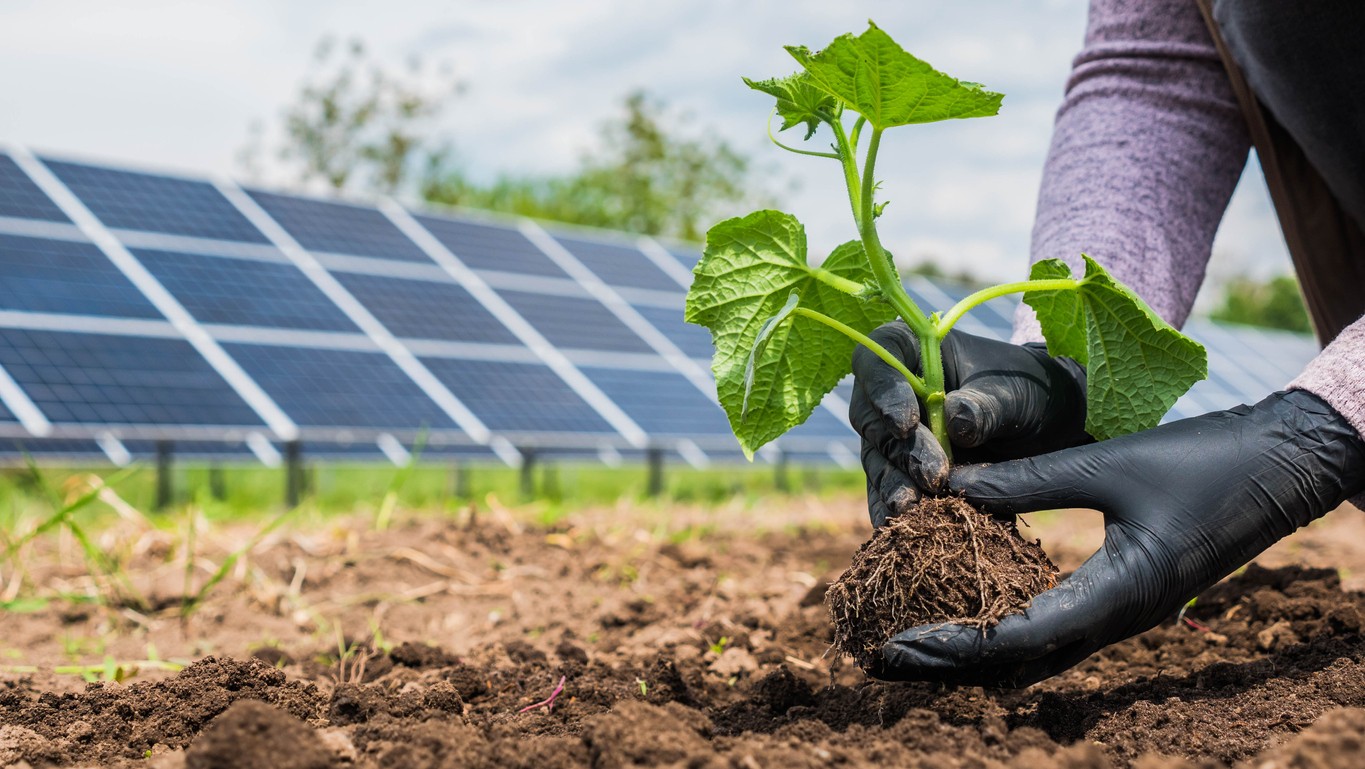
Is solar energy a viable option for farms and agriculture? Surprisingly, the answer to that question is yes. When we thank about farms and agriculture, we immediately think about irrigation systems that water crops and livestock, but smart tech makes the use of solar power within farming and ag a hidden boon. This blog details the use of solar power for farm and agriculture operations.
Solar Power in Smart Agriculture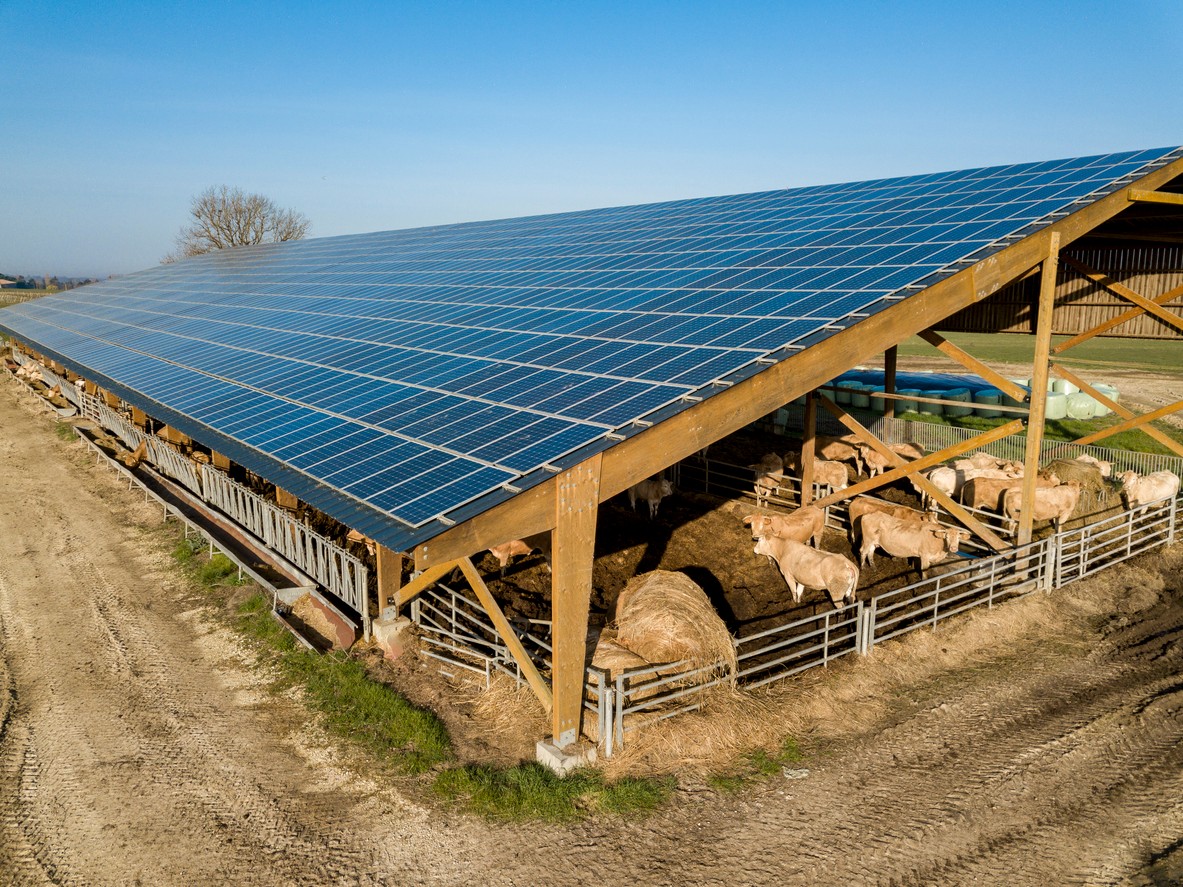
Commercial solar panels, which are larger and produce more watts per panel are the key to helping farmers and growers harness the power of the sun, reduce their cost of electricity, and improve the quality of what they grow or raise.
Improved Tech and New Advancements
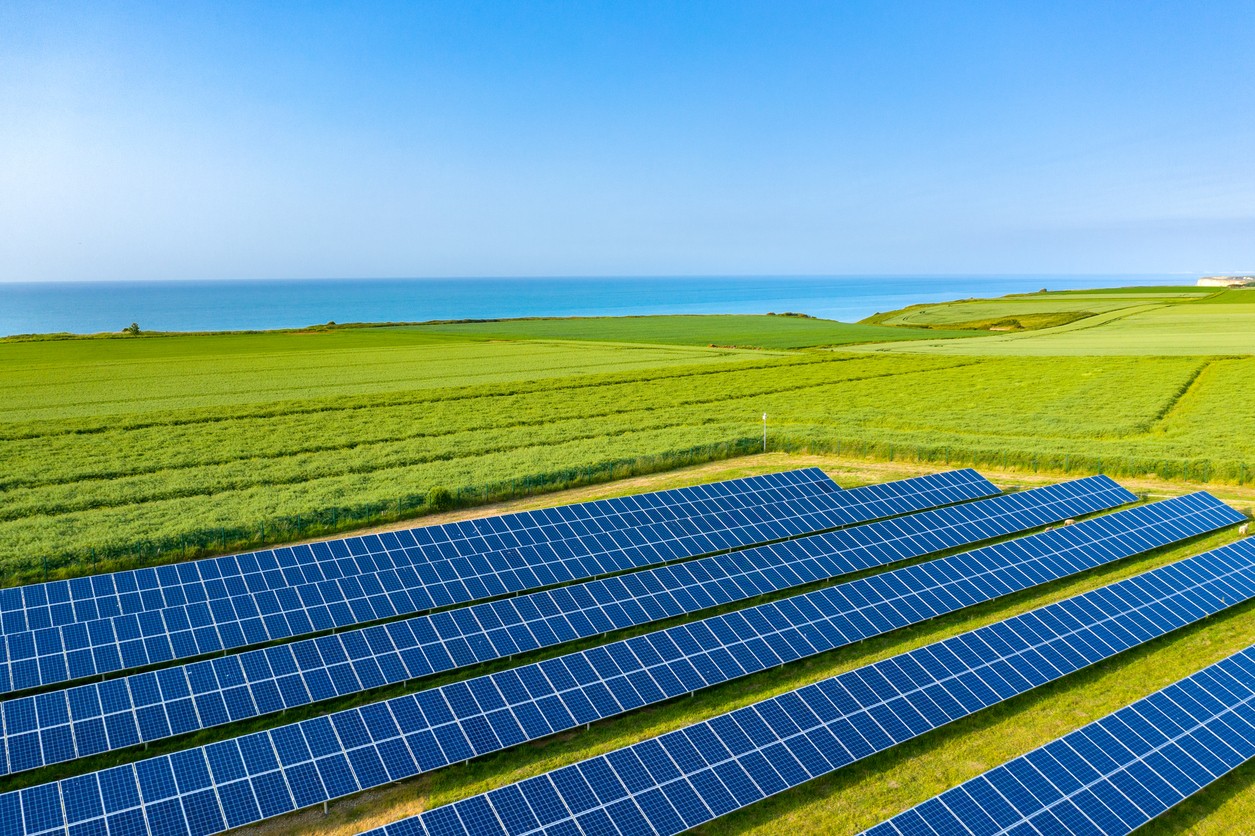
New advancements in commercial solar means it is easier to add power to farms and agriculture production areas at better prices. The industry is growing, and new products and improved technology are making the price of going solar more affordable for commercial clients.
Technology is also improving and as it does, the application of solar energy pairs with new and innovative ways to use solar in farming. The thoughtful advances mean that farmers and ranchers have an option to go solar and drop their energy cost per acre for agriculture productivity. Those advancements are important to farming and tech companies along with solar producers are on board.
Why Farms are Moving to Solar Energy
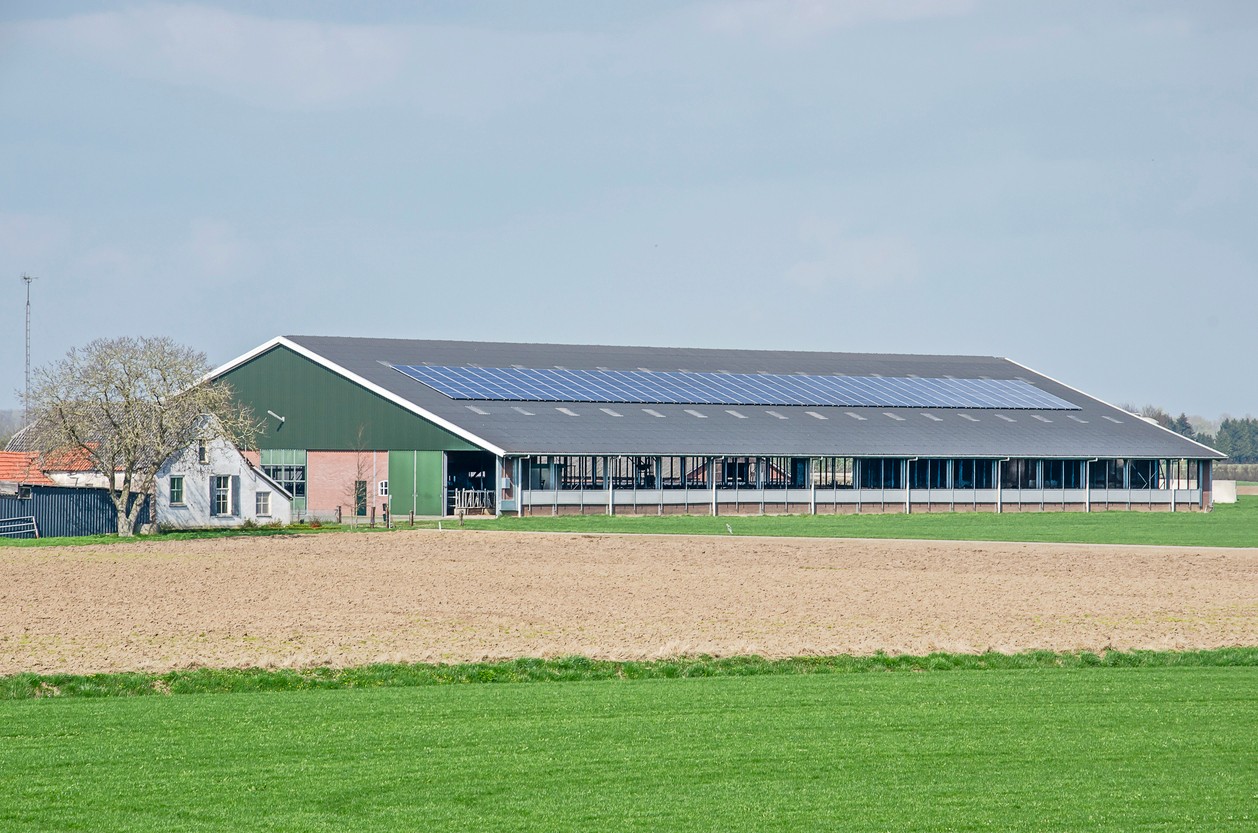
A very common reason why farmers look at solar energy is that it is the easiest way to add power in rural areas and to remote areas of a farm, especially on larger farms. Traditionally, adding power meant installing poles and running wire or digging trenches and installing conduits. Both are expensive. Solar is a quick and customizable way to bring power to areas of the farm where you need it most.
Increased Control Over Energy Use and Production
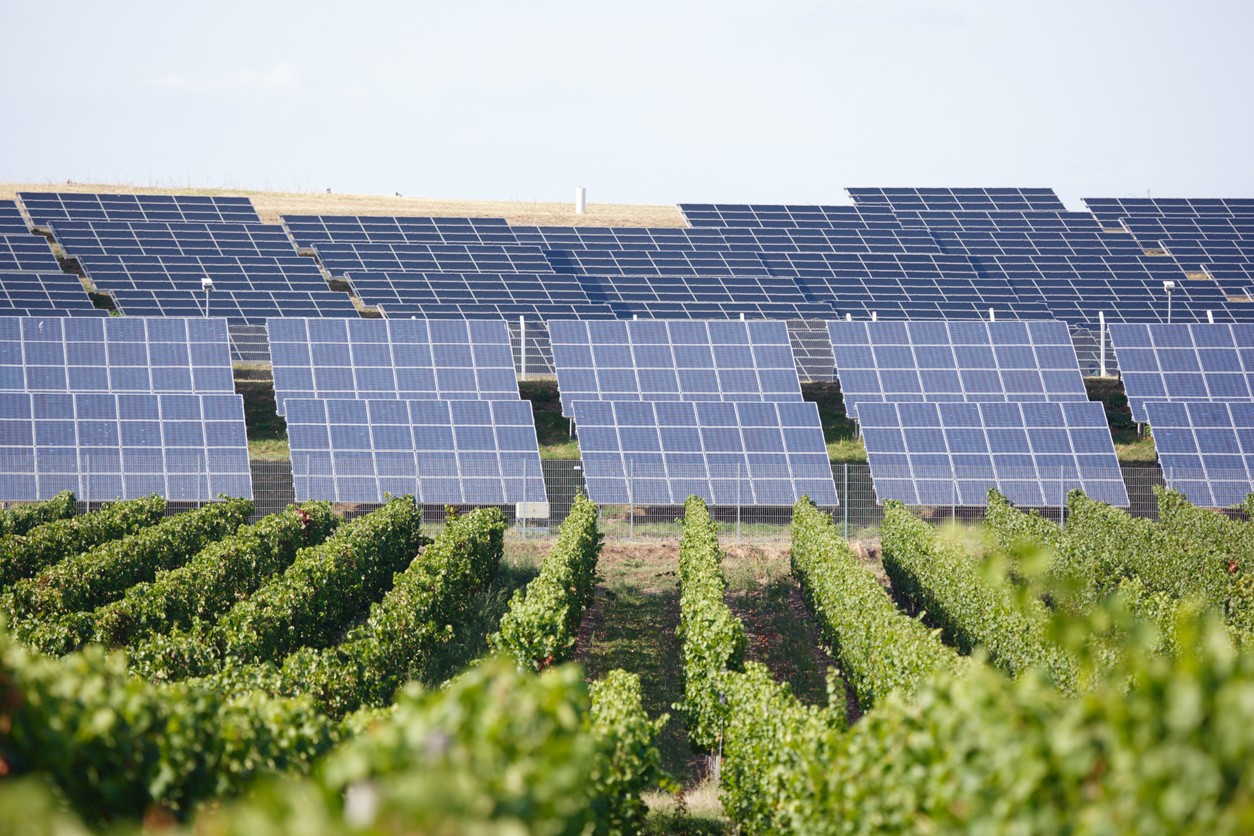
Lately, the big reason for solar energy on farms is to have better control over the availability of energy, especially in California where the local utilities may cut power to prevent wildfires. Known throughout the state as Public Safety Power Shutoffs (PSPS,) these rolling blackouts, which can last for up to ten days, are detrimental to growing crops and other agriculture production areas. Without power, how do you get water from your water pump through your irrigation system to your fields? In a ten-day, PSPS holding ponds would likely be depleted and crops left to wither.
Solar energy changes that outlook by making power available to push water through your water pump, through your irrigation system, and to holding ponds as needed.
Powering Smart Tech
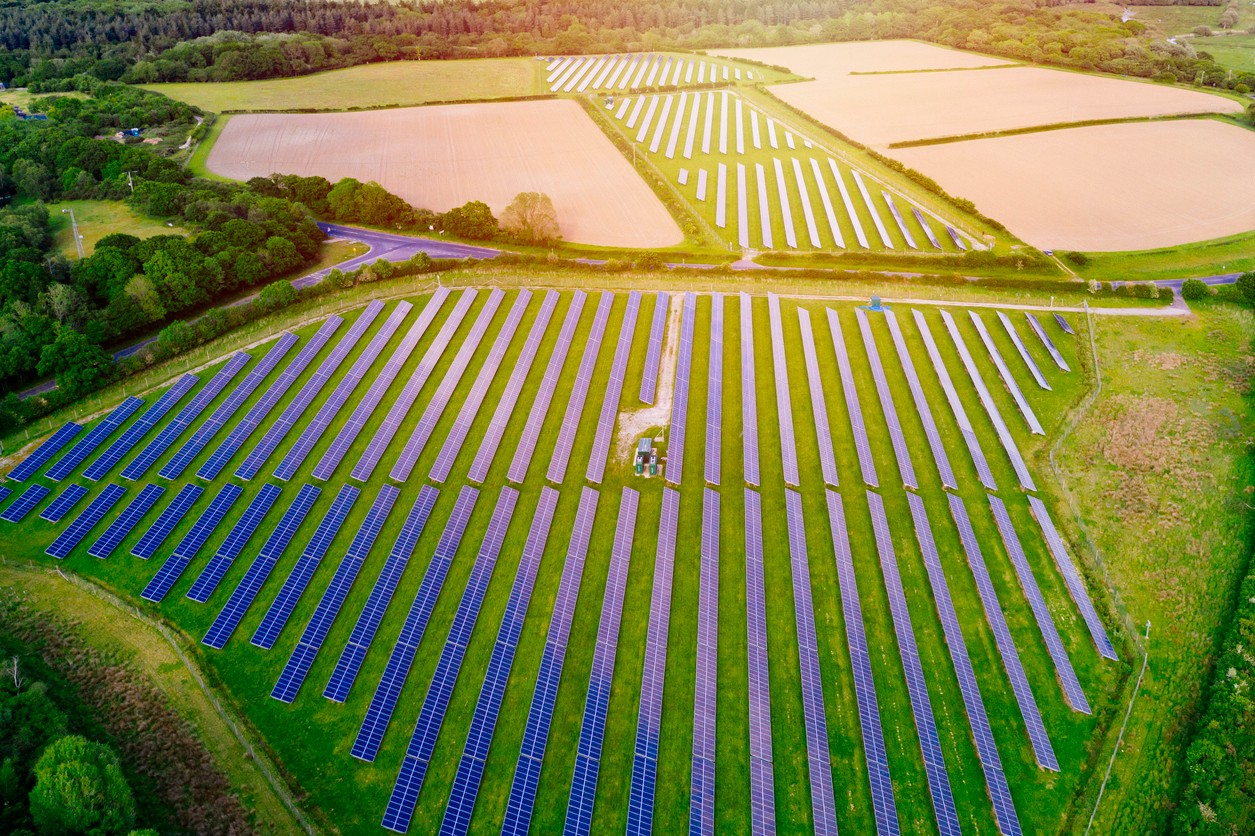
Solar energy also makes it possible to set up smaller power stations that supply energy to technology and devices that gather data about crop and soil conditions. Those include smart controllers that monitor soil moisture and water plants when they need watering rather than watering the entire crop at one time. The process not only saves energy but also saves water.
Thanks to wireless communications, farmers can also monitor field conditions via their smart devices, tablet, or laptop. That means that farmers and farm management teams have more control over the care of their crops, the care of agriculture land, and more control over their businesses.
Farming with Solar Energy
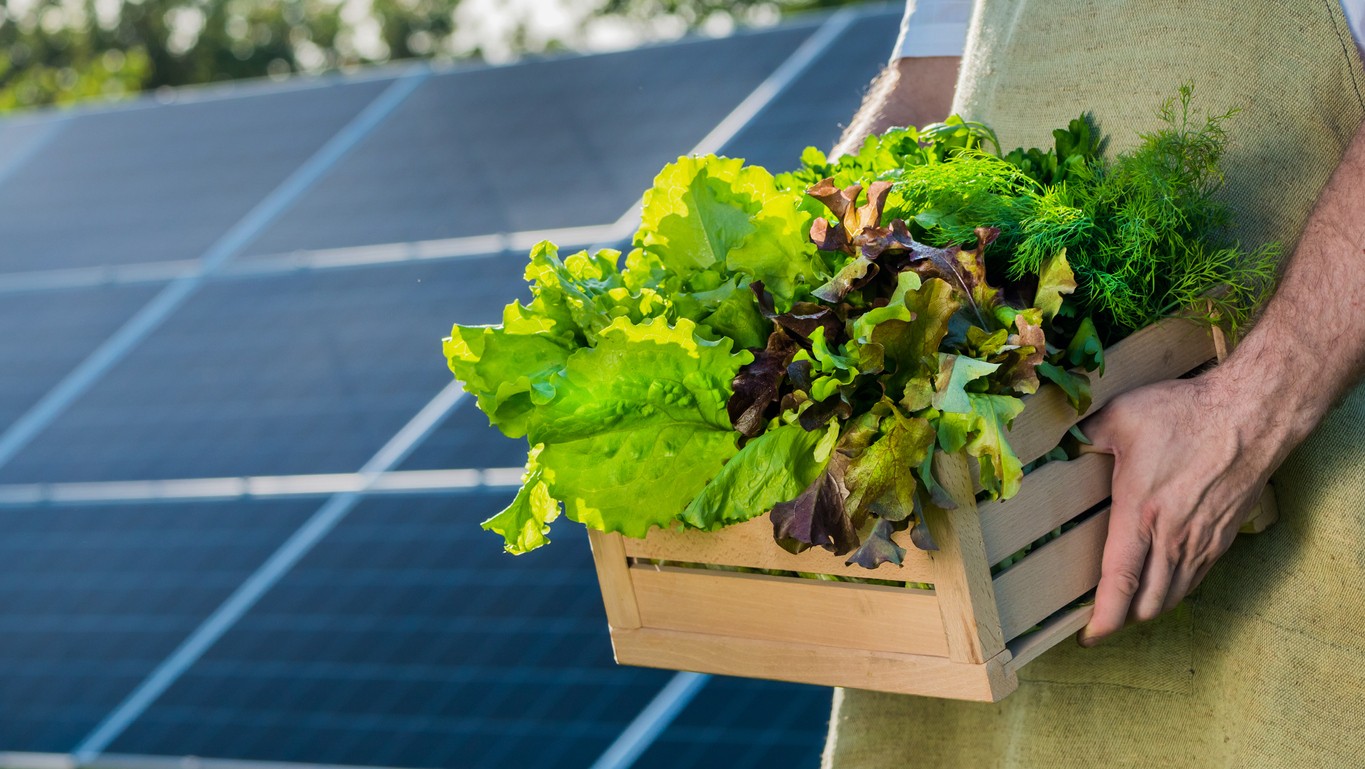
Solar energy has a big space in farming. It is more than a means of drawing water from a well and in a sense, it touches every aspect of farming. The benefits include:
- Dry Crops – Thanks to solar heat collectors, farmers can dry cut crops quickly and affordably
- Heat Homes – Many heating and cooling appliances are adaptable to accept solar energy. This option is also available for livestock barns and enclosures.
- Heat or Cool Greenhouses – Extend crops or protect crops with solar heating for greenhouses
- Add warm water to dairy barns, processing buildings, and for cleaning poultry runs.
Solar energy means that farmers can extend their growing seasons both in spring and winter. With solar energy greenhouse gardens mean you can grow more climate-sensitive plants or extend the growing season for those plants you already grow.
The benefits of solar energy for farms and across the agriculture sector, including dairies, ranching, nurseries, and other farms that face challenges from climate change and weird weather.
Benefits of Solar for Farms and the Agriculture Sector
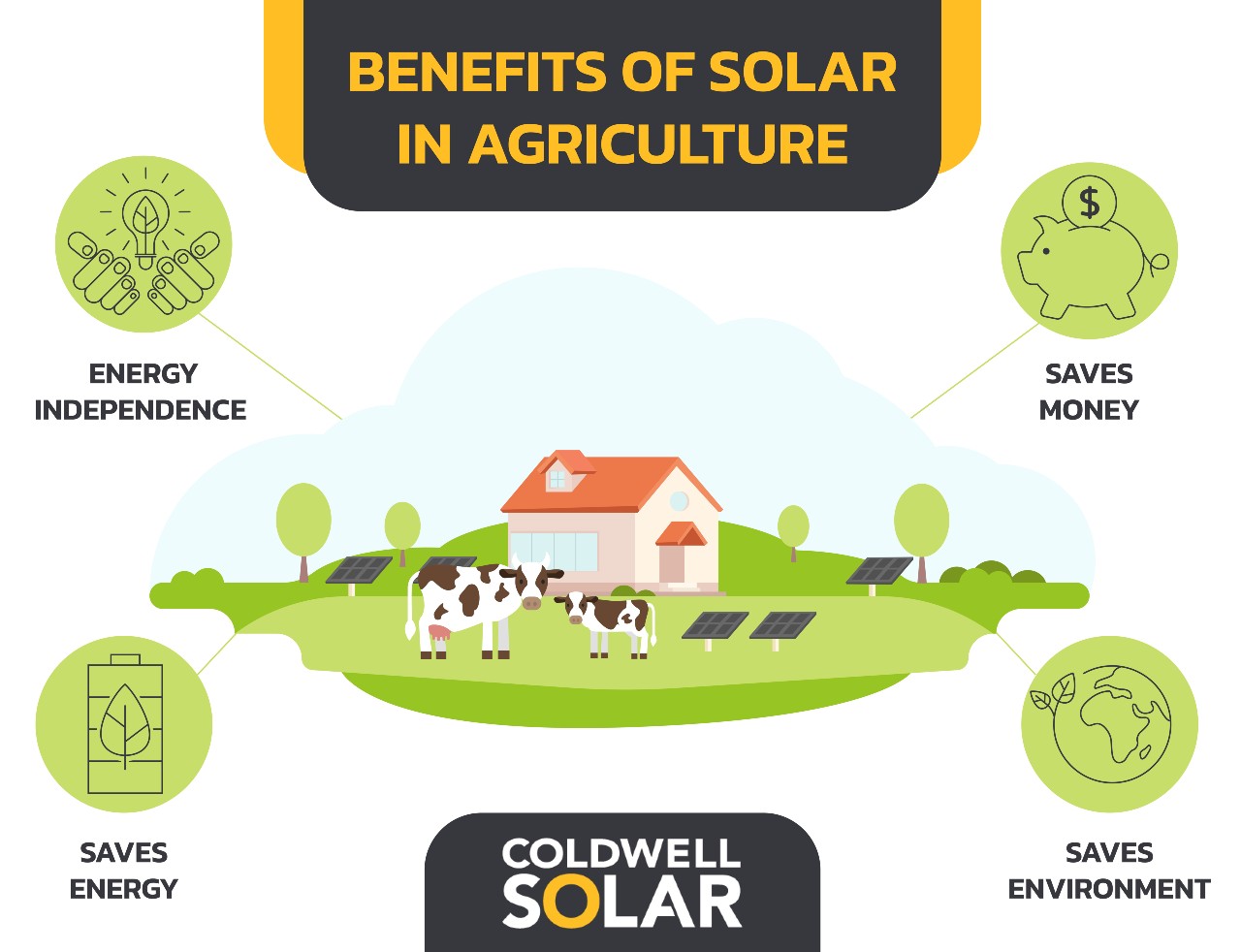
The list of benefits for a farmer or ag producer is quite long. Those include:
- Energy independence – You control how you use the energy your solar farm(s) produce. You are no longer a victim of Public Safety Power Shutoff or the rising cost of electricity grid-generated energy. Your crops or livestock will not suffer from a lack of power, and you are no longer restricted by tiered pricing systems that limit when you can use power on your farm. With solar energy – you can utilize energy when you need to and not worry about the peak hour costs.
- Saving money – There are several ways that farmers and ag producers save money by going solar. There are the cost-savings of not paying for electricity. In most states in the United States there is the option of making money by selling extra energy to your local electricity grid. There is also the benefit of being able to do more with less – meaning that you can grow your business without the increased cost of energy or the risk of managing that during PSPS events. Can solar energy help produce larger yields? Absolutely it can.
- Saving energy – The flip side of going solar is the opportunity to hone energy usage. Through upgrades from energy-using appliances to those that are rated as energy-saving, farmers can do more and still use less energy. Energy optimization for farms and ag production businesses helps ensure that energy is available when you need it most. The idea is that going solar is already a boon in that you are not paying for electricity, just the array. When you also look at streamlining energy usage, your investment goes further. Additionally, solar means you are not tied to paying different costs for electricity based on when you use them or how much energy you use.
- Saving energy, time, and effort – Going solar means that a farmer or ag producer can install small-scale, remote, and affordable solar arrays that power technology that save time, energy, and effort. Consider how installing small solar projects can make you able to run technology that manages water delivery, soil moisture monitoring, reports critical issues, and empowers you to use less water while growing more crops. The result can be that your harvest is larger, cleaner, and of higher quality. That scenario is very possible thanks to solar PV and solar technology. The investment in solar helps by cutting utility costs and maintenance and places the control of energy 100 percent into the farmer’s hands.
- Saving the environment – Going solar means reducing electricity created traditionally – burning fossil fuels. The creation of greenhouse gas emissions is a detriment to farming and crop production. When farms go solar, they use green electricity which is beneficial to the environment and farming. The environmental cost of producing a crop or raising livestock drops too. As more farms go solar, the carbon footprint of food production decreases, and as it does, the cost both to the environment and bottom line also decreases.
How to Get Started
Take a few moments and think about how solar power can benefit your farm and business. Are there opportunities that you cannot use without the expense of running lines to remote areas of your farm? Is the cost of installing heating systems in barns, pens, and greenhouses too high because of the cost of buying electricity? Going solar can be more than just providing renewable energy for your home and office. It can include clean energy production to not only cover all your current energy needs, but the energy needs you may need tomorrow.
As a leading commercial solar contractor, Coldwell Solar understands that every farm or ranch is different, even when they grow the same crops. Each property faces challenges that make what they do and how they run their business unique.
To address those unique challenges, Coldwell Solar looks at the energy goals, current energy usage, opportunities that solar can provide, and energy-saving options then develop a plan that addresses these concerns.
Installing solar on farms is not just about installing panels on a barn’s roof and walking away. It is more about looking at what each farm needs in terms of energy, growth opportunities, and partnering with large farms and small-scale farms, including hobby farms, so that the result is a vast improvement, cost savings year-over-year, and resistance in the face of environmental pressures such as wildfires. If you are a farmer or ag producer and are considering the benefits of clean energy (solar) as they apply to your farming business, then give Coldwell Solar a call to learn more.

